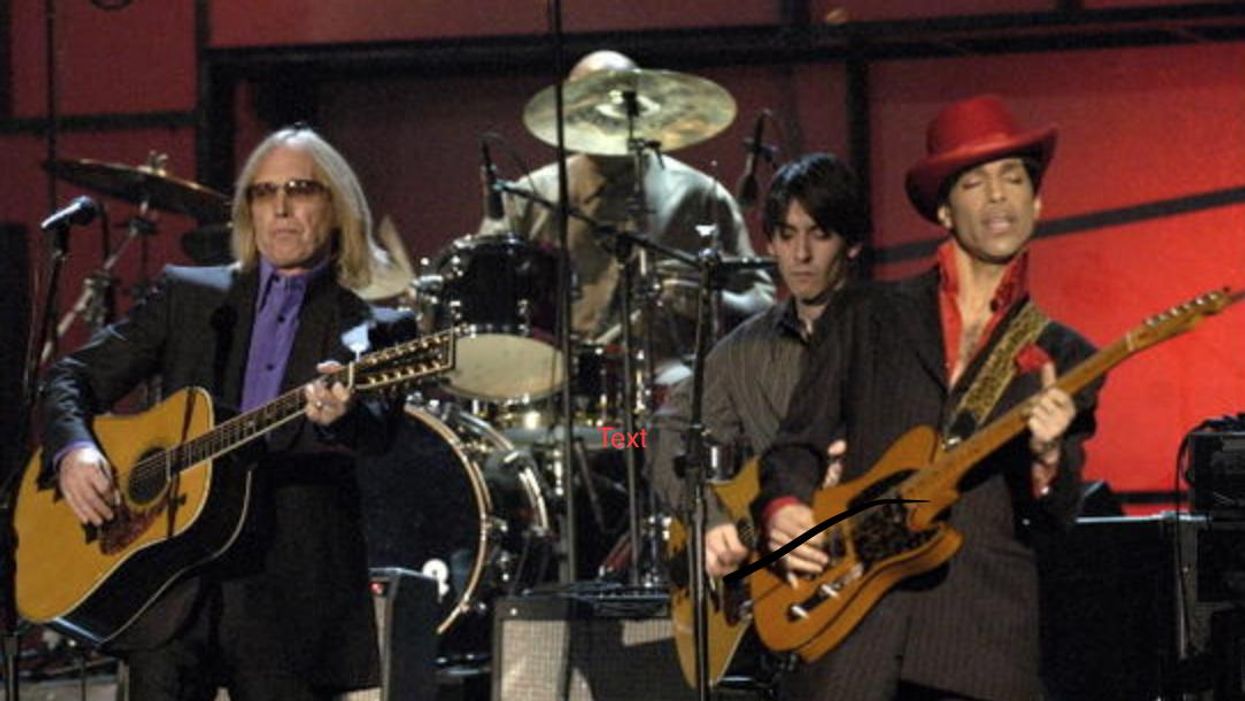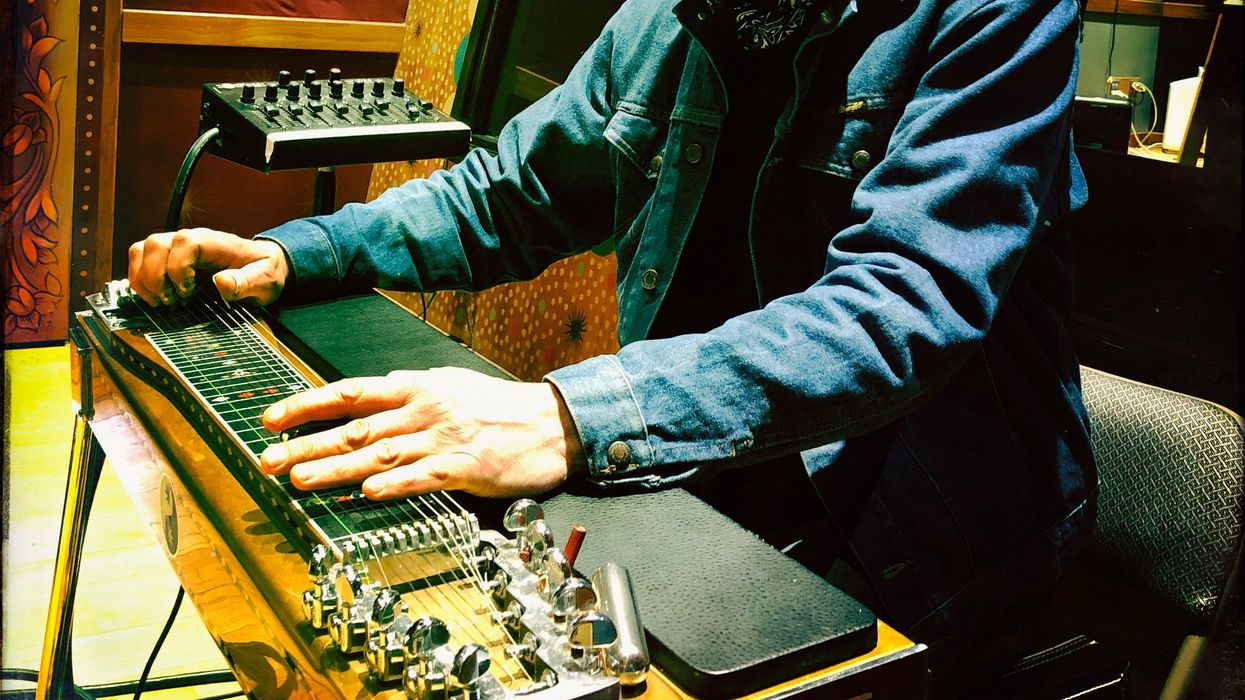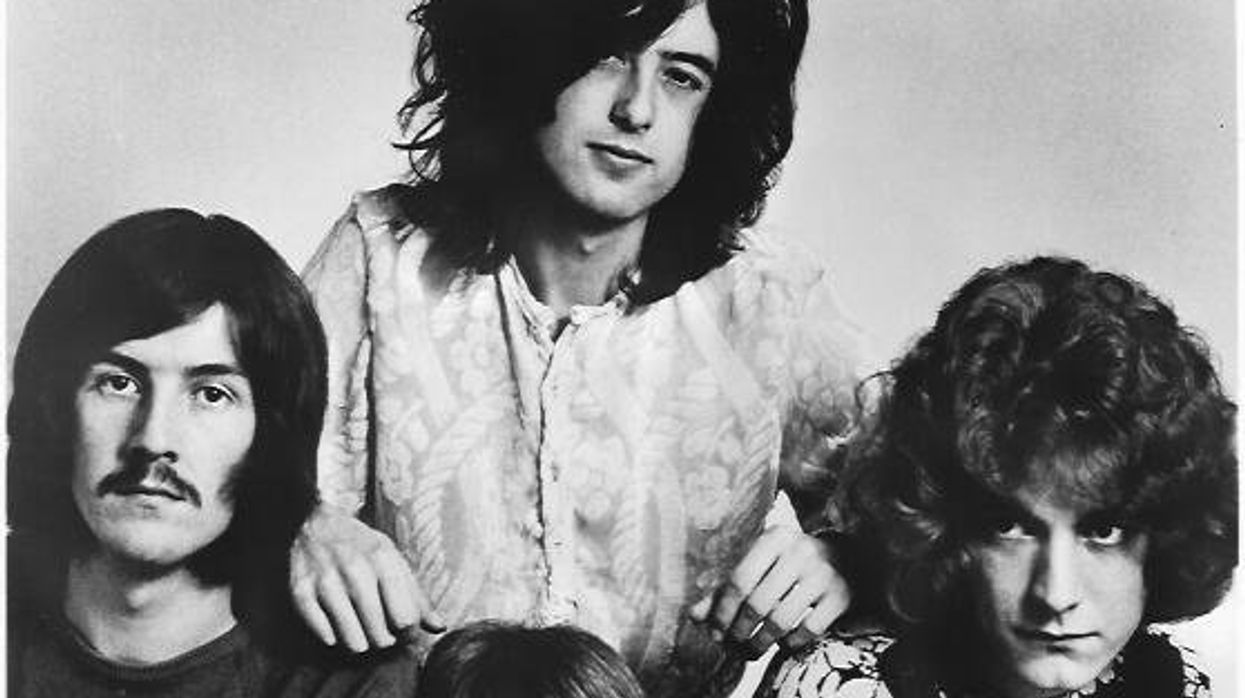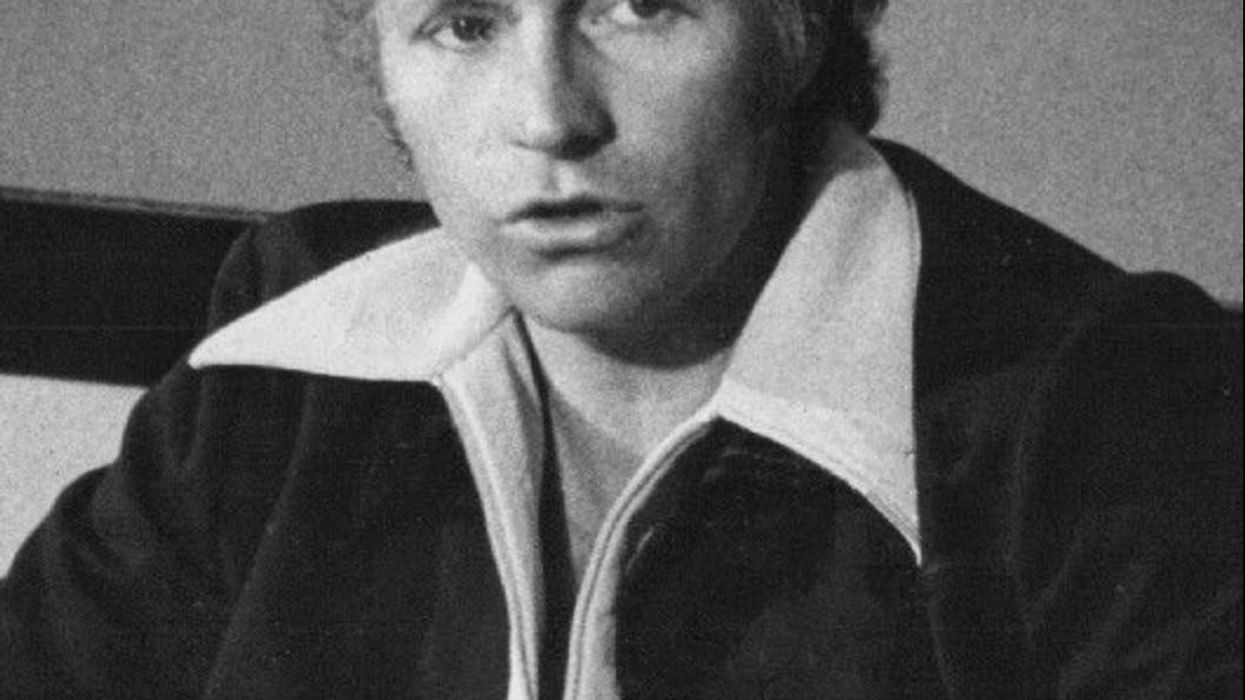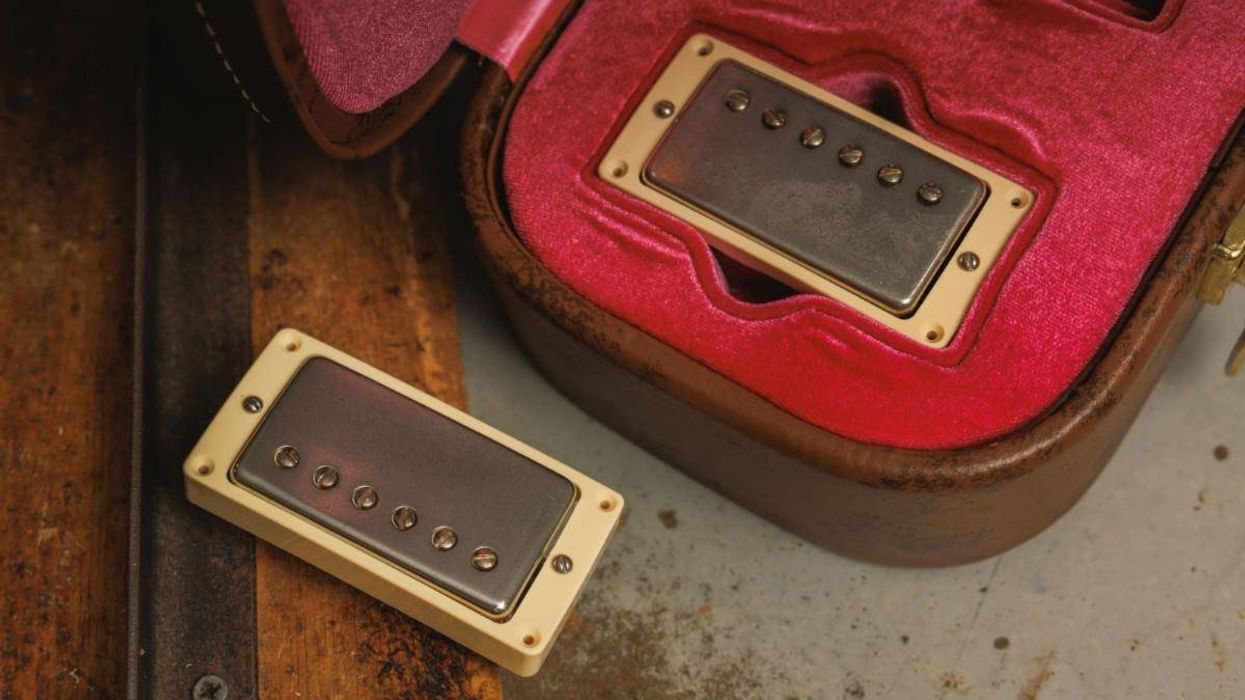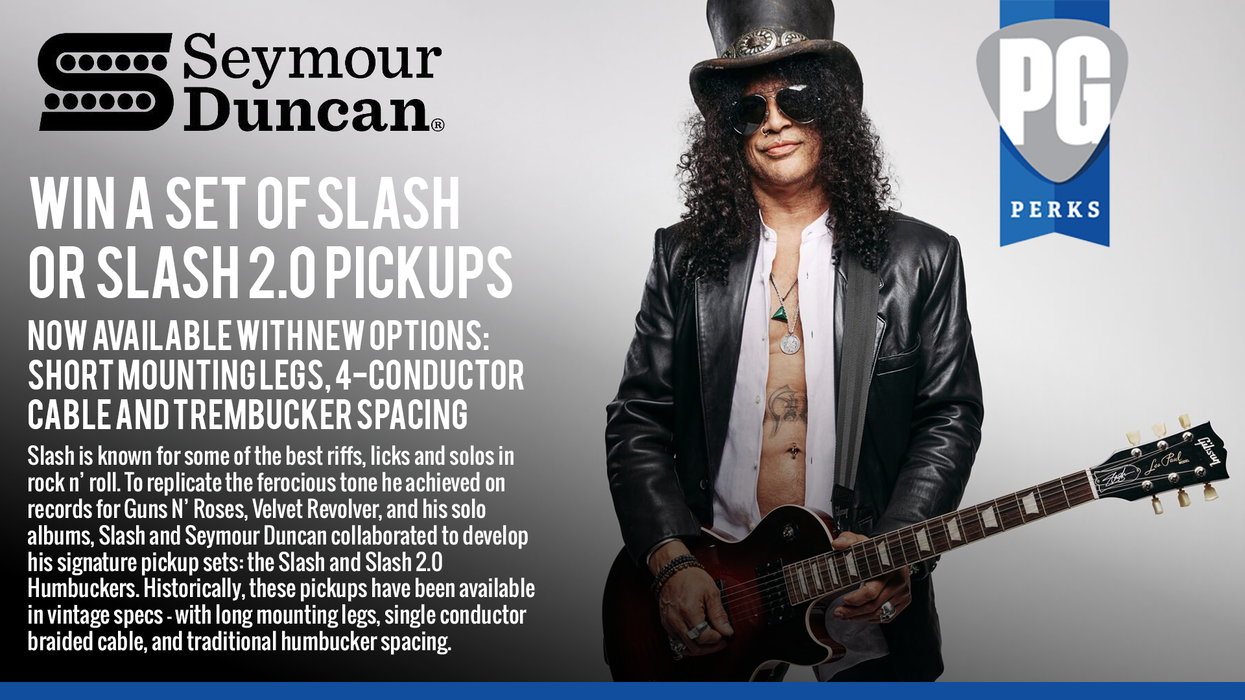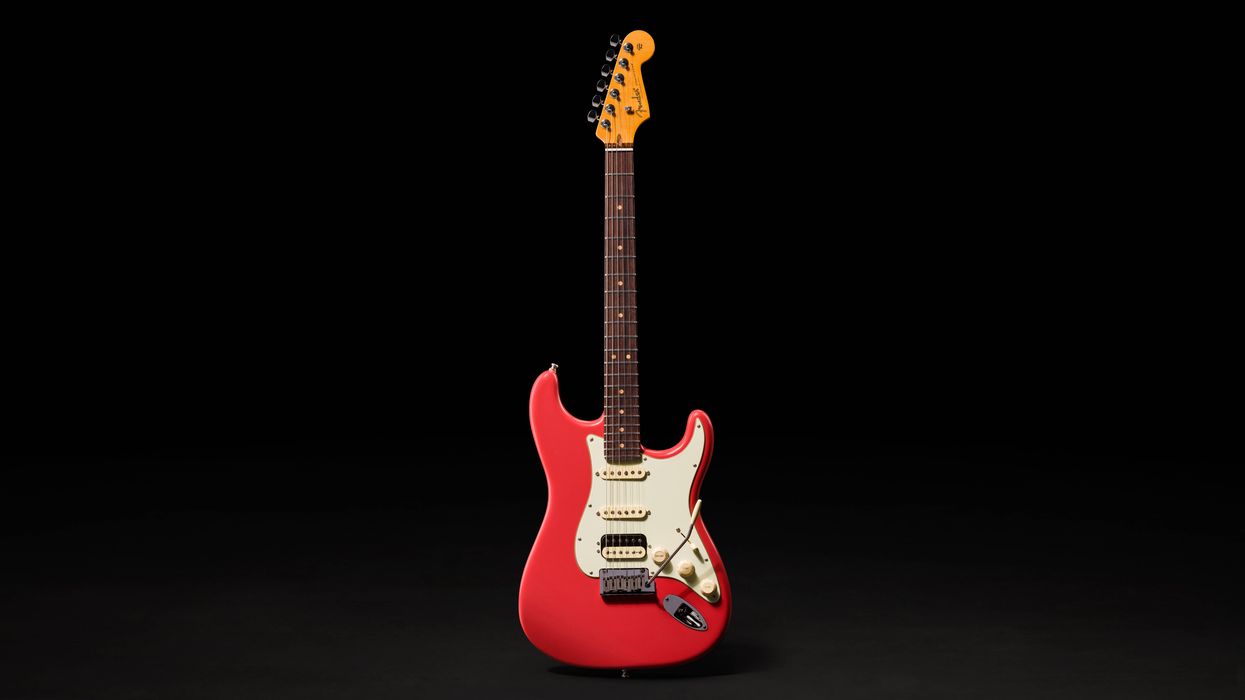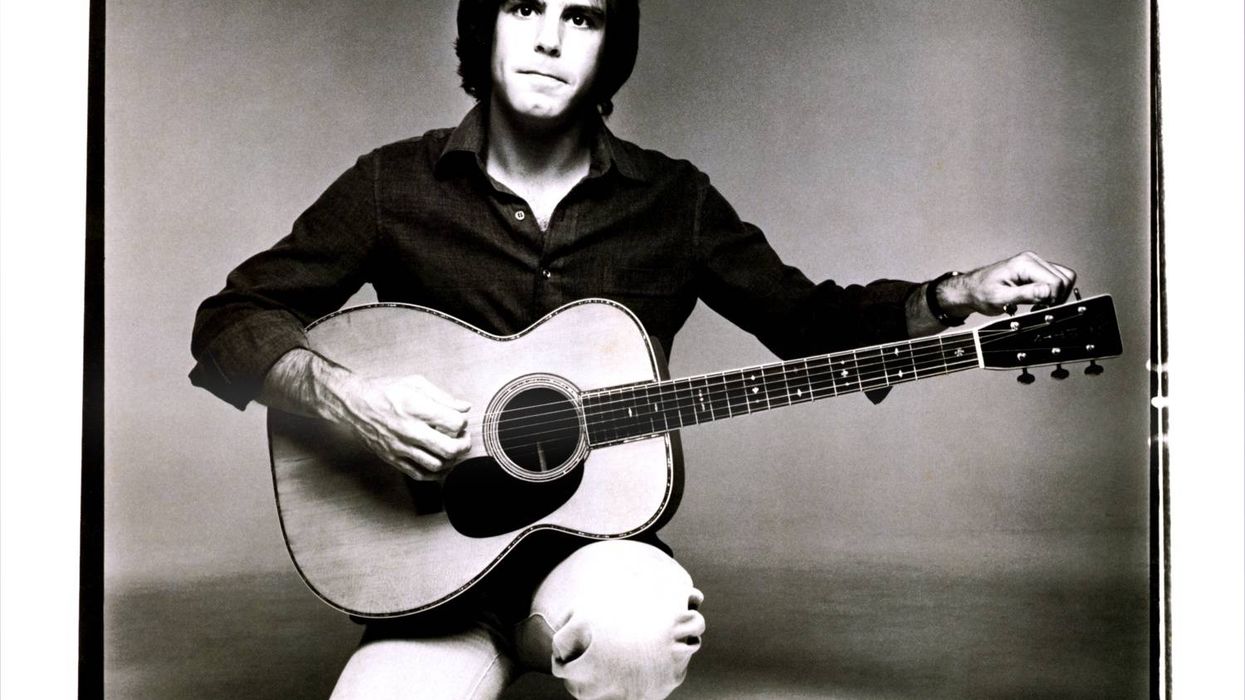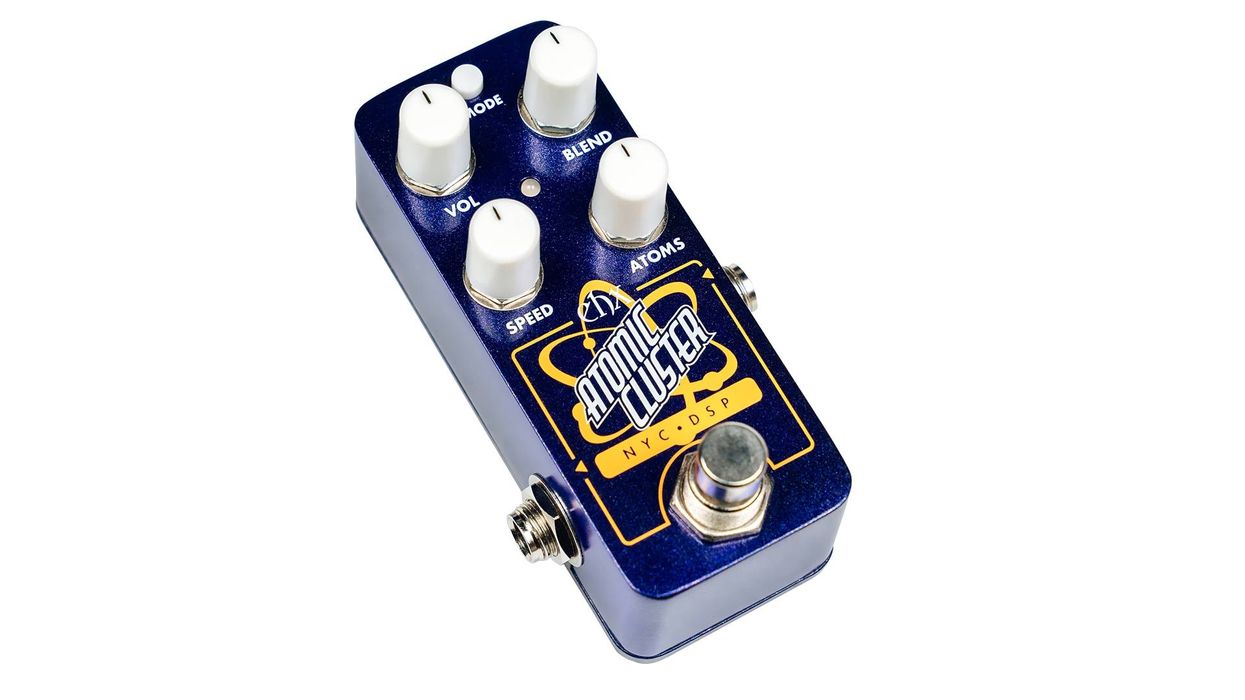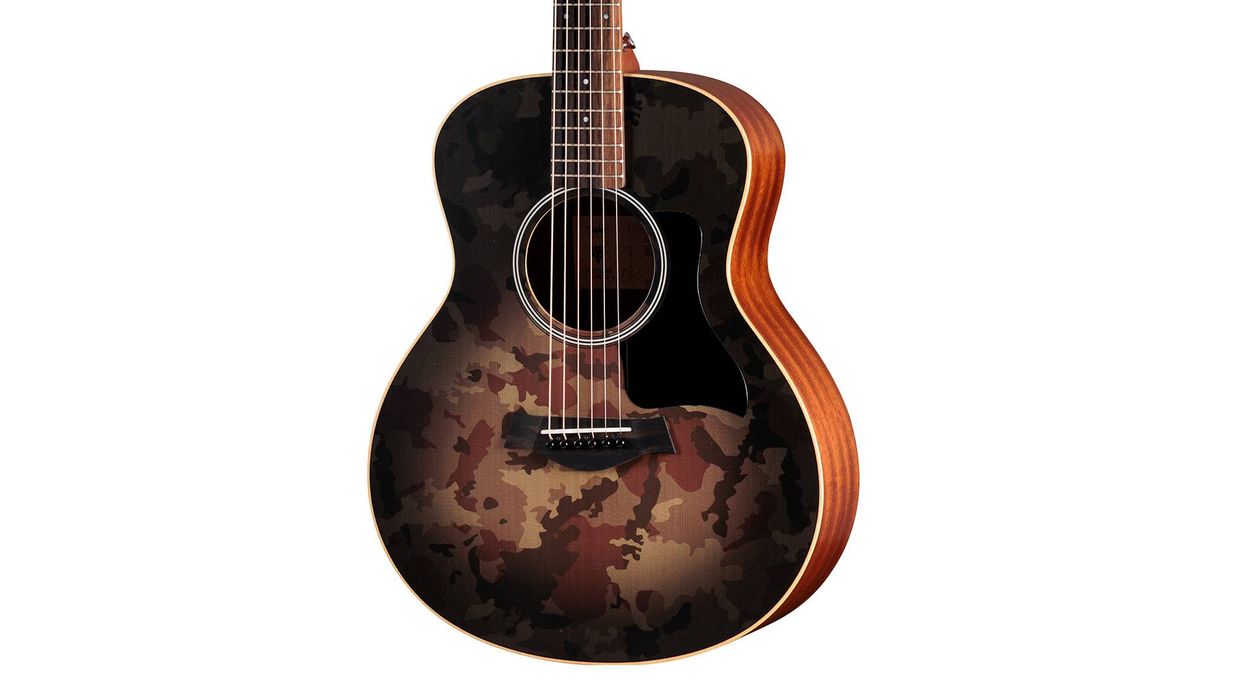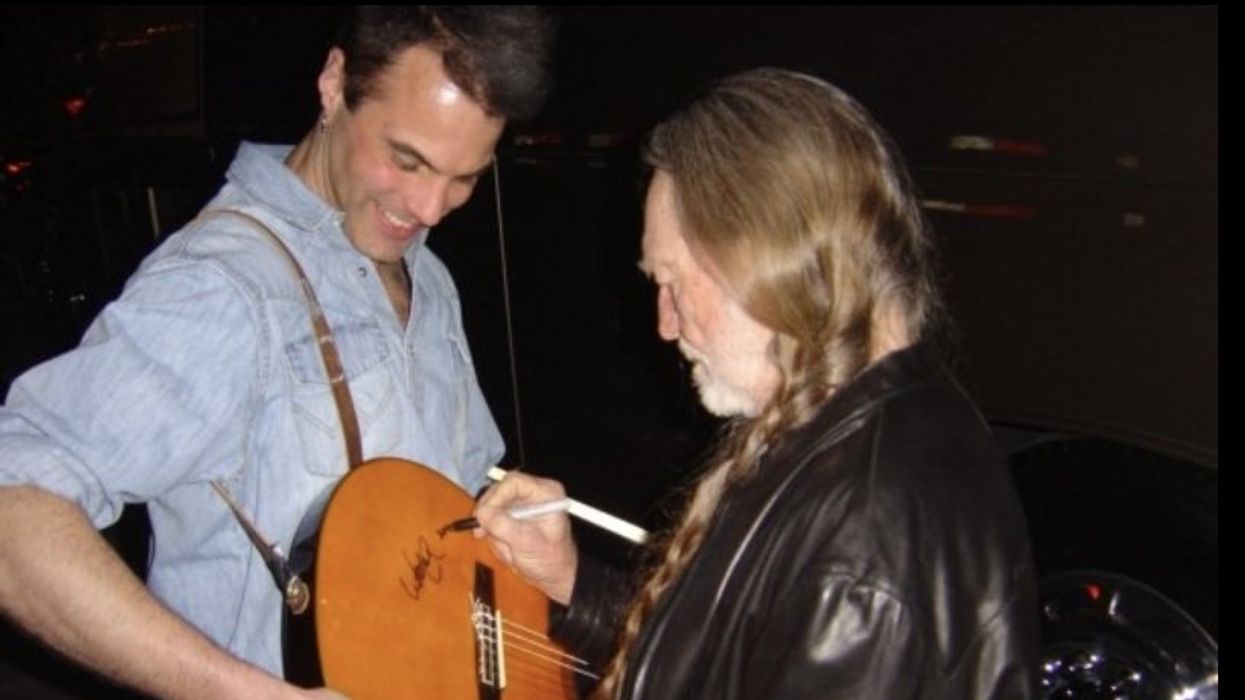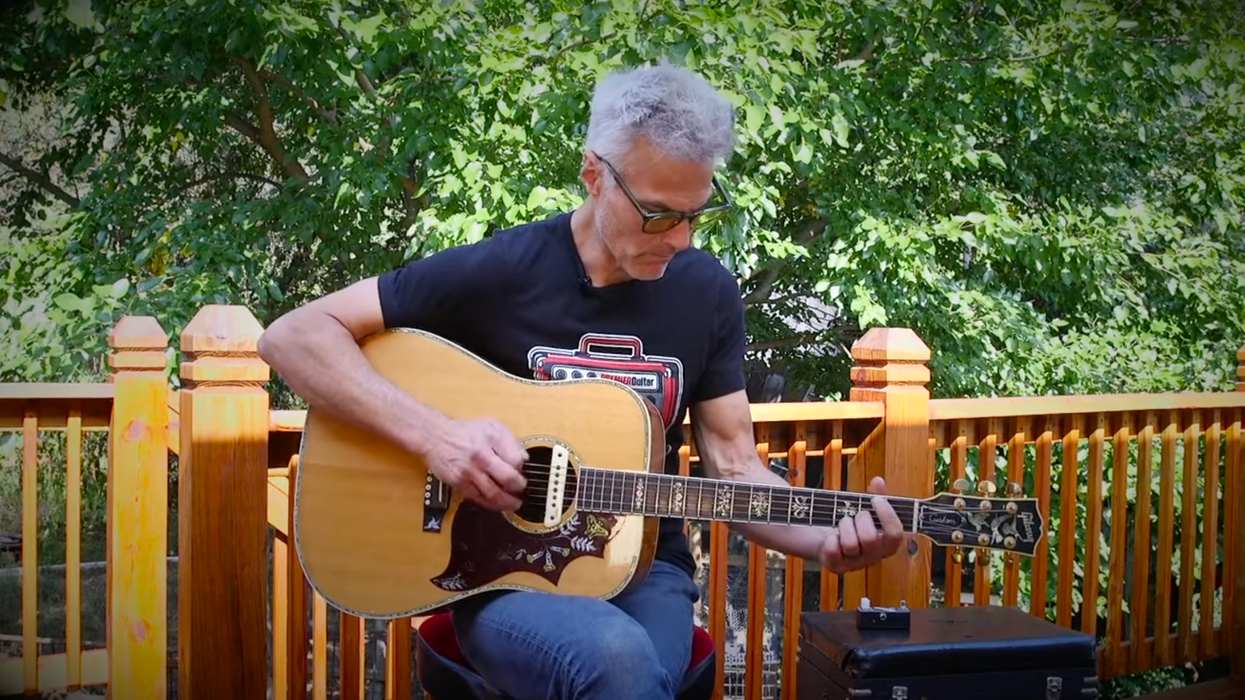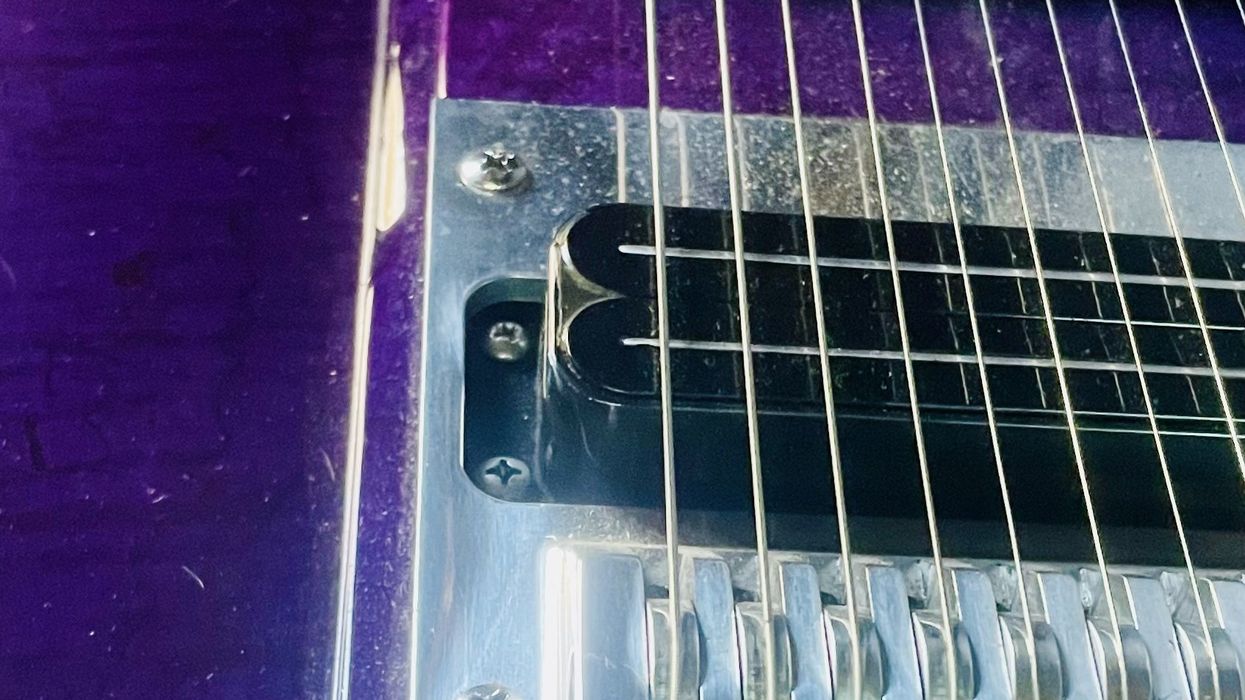A cop pulls a drunk over and demands that he get out of his car.
The cop says, "Obviously, you've been drinking. I need you to perform a sobriety test."
The drunk, swaying back and forth, answers with a smug slur: "Oh, really? You think I'm drunk, huh? Would a drunk be able to do this?"
The drunk then violently swings his arms above his head as he does a fast, deep knee bend. He then lets out a howl, craps his pants, and falls over in a stinking, moaning heap.
The cops say, "Yes, that's exactly what a drunk would do."
The drunk replies, "I was going for the backflip."
The wildly talented Reggie Bradley Smith told me that joke back when we toured together with country artist Lee Brice. After some of our more adventuresome performances, Reg and I would greet each other with, "I was going for the backflip," as we walked off stage.
Guitarists are left with this difficult balancing act: giving the people what they want while trying to give them something that means more.
This gig was a creative, safe place to stretch and grow as a musician. The rule was stay true to the signature elements of the song, but allow the muse to direct you. This environment made for some amazing shows, giving concertgoers something they'd never seen nor heard before. Admittedly, I did not always stick the landing, but missed notes don't matter. In this age, where so many bands are merely reinforcing prerecorded tracks, it's a beautiful and rare thing to see in the wild: a great band in full flight, listening and playing off each other, truly creating music. To my way of thinking, the "perfect show" is not the one that sounds just like the record—it's an emotionally charged, unique work of art that the audience and band experiences fresh, together.
I've always thought a show needed to be, well … showy. Prime example: Prince's nearly three-minute guitar solo on "While My Guitar Gently Weeps," that he performed with Tom Petty, Steve Winwood, and Jeff Lynne at George Harrison's induction into the Rock & Roll Hall of Fame. From his legato intro until he tosses his Telecaster in the air and struts off stage, it's an incredible improvised performance under the most high-pressure circumstances imaginable. Although it's got a lot of flash, it's all musical, respectfully paying homage to the Beatles and Clapton's iconic recording, while remaining spontaneous and fun. Prince went for the backflip and stuck the landing.
Prince, Tom Petty, Steve Winwood, Jeff Lynne and others -- "While My Guitar Gently Weeps"
As you may suspect, I'm a doesn't-practice-what-I-preach kind of person. I talk a big game about taking chances with art, trying to create something new, serving the song, etc. In reality, when I'm playing live, I tend to build solos by pulling a few semi-fast, flashy licks I've memorized out of my medium-sized bag. What I should do is try to say something, be melodic, make it more about the song and less about my trying to impress people. I choose showy because I lack the confidence for restraint. I listen to playback of live recordings and hate 75 percent of my solos, because most are clichés strung together. But I'm not alone.
Slash's "November Rain" solo remains one of the most revered in all of rockdom. It's full of emotionally charged whole notes, much like a symphonic piece. Surprisingly, apart from some improvised 2-bar runs at the end of each 8-bar phrase in the outro, it's all easy to play. The hardest part of that solo is the restraint and dedication to melody. A while ago, I saw GNR live and, honestly, it was disappointing. Maybe it was an off night on a long tour, but with the exception of "November Rain" and "Sweet Child o' Mine," where Slash played melodically, most of his solos started and ended with blistering riffs that, although physically impressive, didn't hold my attention.
But Slash is in a difficult position: It's hard to trust in a simple part when you know that people want to see blistering runs. Why? Because that shit is awesome. So, guitarists are left with this difficult balancing act: giving the people what they want while trying to give them something that means more. It's just easier, or perhaps safer, to shred than to try to express something emotional.
My friend Joe Reed played bass with Merle Haggard from 1990 to 1995, when Clint Strong was on guitar. Although people often think of country music as primitive cowboy chords, Joe and Clint are incredibly advanced musicians, with deep jazz leanings. Joe told me, "Clint and I roomed together on the road and would come up with cool alternate changes. It was a very musical gig and Merle didn't mind you going for something cool, but I guess it would get a little too far out and Merle would address the issues saying, 'Boys, when you get so far away from my songs that I can't recognize them, it's time to pull it back'."
That's the challenge: when to stretch, when to pull back, when to go for the backflip, and when to walk a straight line.
